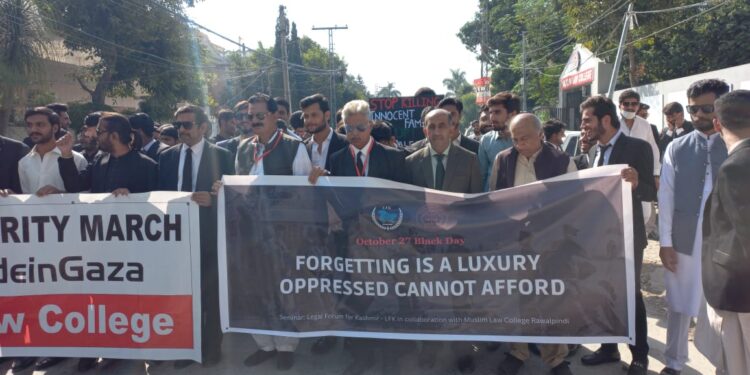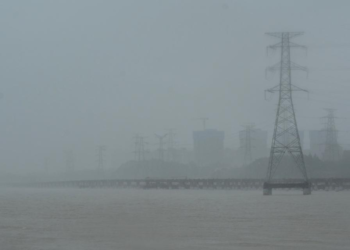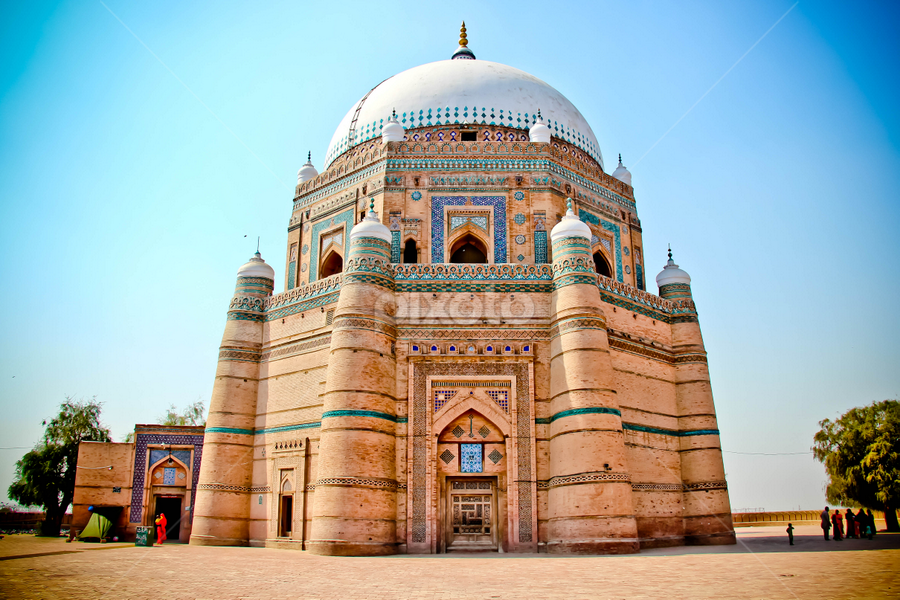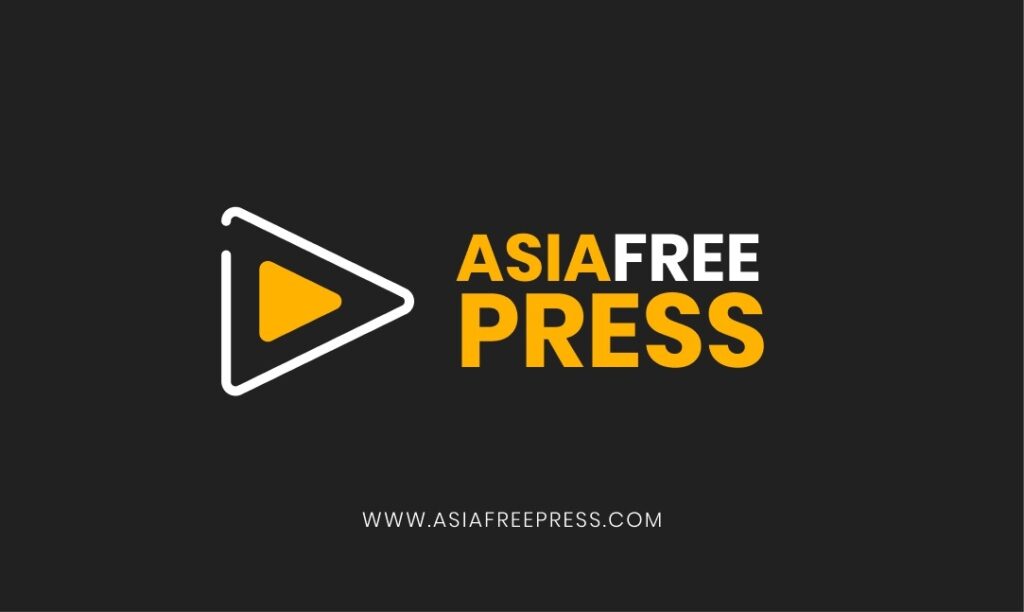Rawalpindi, October 27: Legal Forum for Kashmir (LFK) in collaboration with Muslim Law College Rawalpindi came together on October 27th to host a significant event shedding light on why Kashmiris worldwide observe this day as a “Black Day.” This date marks the tragic entry of the Indian army into the valley in 1947, initiating a dark era of occupation and tyranny that continues to cast a long shadow over the region.
The event, graced by distinguished speakers, including Mr. Naeem, Lecturer in Political Science and research associate, Kashmala, research associate LFK, Saad Reyaz, senior lawyer Islamabad and others. The Principal of the Muslim Law College emphasized the significance of remembering and understanding what Kashmiris have endured and continue to endure, while Kashmala urged participants to become ambassadors of the Kashmiri people, striving to raise global awareness about their ongoing plight.
Mr. Naeem, delivered an insightful presentation highlighting the historical context of the Kashmir dispute. In his address, Mr. Naeem took the audience on a journey through time, unraveling the complex and deeply rooted issues that have plagued Kashmir. He underscored the need to recognize the region’s rich history, its diverse culture, and the aspirations of its people for self-determination.
Mr. Naeem’s impassioned words emphasized that Kashmir’s history was not just about the conflict, but also about the resilience and determination of its people. He stressed that understanding this history was essential for any meaningful resolution to the longstanding crisis. He concluded by urging the international community to support the Kashmiri people in their quest for justice and self-determination.
The Principal of Muslim Law College, in his thought-provoking speech, addressed the power of memory as a tool of resistance. He highlighted the pain and suffering inflicted upon Kashmiris over the years, emphasizing that we must not forget what happened on October 27, 1947. The Principal pointed out that remembering and acknowledging the past is essential for preventing history from repeating itself.
In his words, “The memory of October 27th should serve as a constant reminder of the injustice faced by Kashmiris. It should motivate us to work tirelessly for their rights and for a just and peaceful resolution to the conflict. It is our duty to ensure that the world does not forget the suffering of the Kashmiri people.”
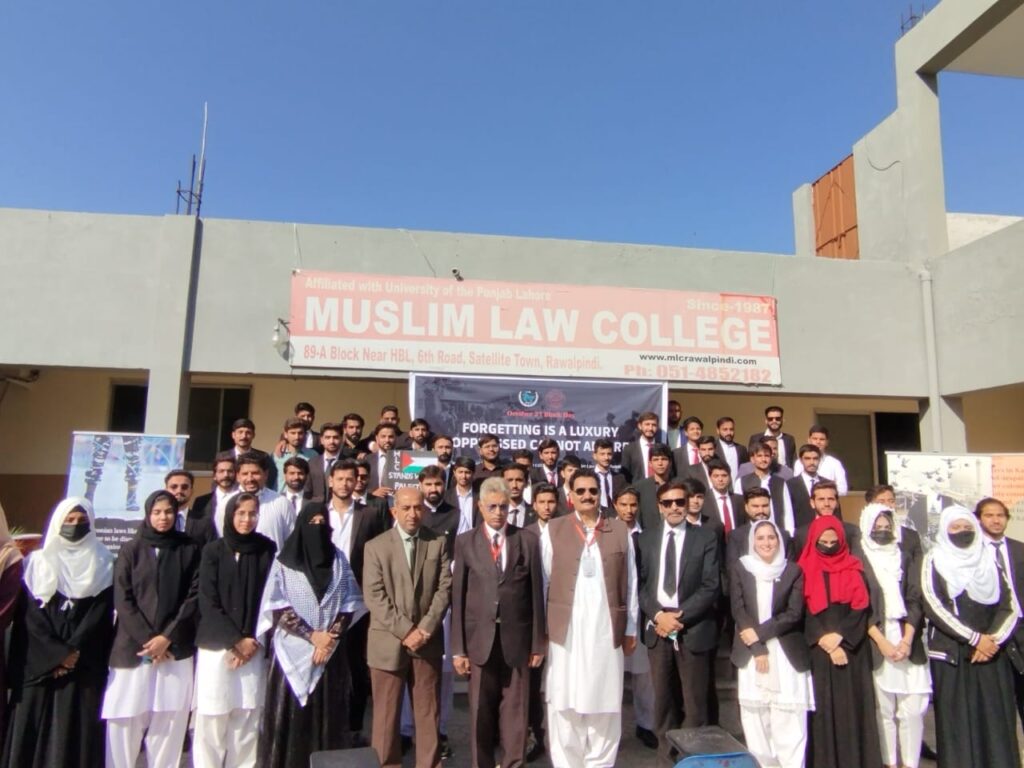
LFK research associate Kashmala, spoke passionately about the need to document and write about Kashmir and the ongoing oppression in the region. She emphasized that it was not enough to rely solely on historical accounts. The world needed to hear the voices of Kashmiris in the present, and these stories must be documented and shared widely.
Kashmala encouraged the audience to become ambassadors for Kashmiris around the world. She highlighted the power of awareness and the importance of influencing public opinion and international policy. She stressed that every individual has a role to play in advocating for the rights and dignity of the Kashmiri people, regardless of their nationality or background
The event provided a platform for meaningful discussions and reflections on the Kashmir issue. It brought together academics, activists, and concerned citizens who shared a common goal – to remember the past, amplify the voices of the oppressed, and advocate for a just and peaceful resolution to the Kashmir conflict.
As the world observes October 27th as a “Black Day” in Kashmir’s history, the event served as a poignant reminder of the ongoing suffering in the region and the collective responsibility to stand in solidarity with the Kashmiri people. The discussions and insights shared by the esteemed speakers left a lasting impact on all those in attendance.
Legal Forum for Kashmir and Muslim Law College Rawalpindi expressed their gratitude to all participants and reiterated their commitment to continue raising awareness about the Kashmir issue. They emphasized the importance of upholding the principles of justice, human rights, and self-determination for the people of Kashmir.


